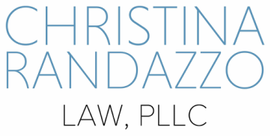|
by Christina Randazzo, Esq. On April 2, 2020, the Child Parent Security Act (CPSA) became law, making gestational surrogacy agreements finally legal in New York State.
Until the new law, New York seriously lagged other States as the ways and means to create a family continued to expand and evolve. For those struggling to have a child, and for LGBTQ families, the restriction was especially painful and limited their options in creating a family in New York. Prior to April 2, 2020, Domestic Relations Law § 122 stated explicitly that “surrogate parenting contracts are hereby declared contrary to the public policy of this state, and are void and unenforceable.” Not only were the contracts unenforceable, but if the surrogate was compensated under a contract, the parties and anyone who helped them prepare the agreement, including attorneys, could be subject to fines. The statute even contemplated a felony conviction for more than one offense. The CPSA introduces a new article to the New York State Family Court Act, codified as Article 5-C. Parties may now enter into enforceable surrogacy agreements, and those agreements may include compensation to the surrogate, whether by direct payments or payments for expenses. But there are still clear requirements that must be followed to comply with the statute and to enforce the agreement. There are limitations on who can act as a surrogate, what the surrogate must do to qualify, who the intended parents are and how they qualify, requirements as to the intended parents’ relationship to each other, and whose egg can be used. There is also now codified the Surrogate’s Bill of Rights, which applies to anyone acting as a surrogate in New York, and those rights cannot be waived or limited. Every person acting as a surrogate in New York has the right to make all of their own health and welfare decisions, including how many embryos are transferred, whether they will have a c-section, or whether to reduce or terminate the pregnancy. Every surrogate has the right to their own independent attorney, as well as health insurance and to have all of their pregnancy-related health expenses paid for. They also have the right to counseling in pregnancy-related issues and to a life insurance policy. All of these expenses are to be paid for by the intended parent(s). The surrogate also has the right to cancel the agreement at any time for any reason before becoming pregnant. The surrogacy agreement itself is only enforceable if it complies with all of the requirements set forth in the statute, and the requirements are complicated and extensive. In addition to requiring provisions about various insurance policies and expenses to be paid on behalf of the surrogate, the statute also mandates the timing of the agreement in the surrogacy process, as well as the placing of funds in escrow with an independent escrow agent to cover base compensation and reasonable anticipated additional expenses for the surrogate. All of these things must be addressed in the surrogacy agreement within the bounds of the law. Once the agreement is drafted in compliance with all of the statutory requirements, the intended parents still need to obtain a judgment of parentage, and that process also is regulated by statute. Strict compliance is crucial. If the attorney got it right, and all the requirements are met, the parties are automatically entitled to a judgment of parentage of the baby the surrogate carries. But if the requirements have not been met, a judge may be empowered with discretion to determine parentage based on additional and other factors, despite what the surrogacy agreement says. That could be a nightmare for intended parents, who may find themselves losing entitlement to parental rights because a surrogacy agreement was not properly drafted. As this is a brand new statute and area of law in New York, it is also new territory for most New York attorneys. Navigating the statute, regulations, and everything they require is complicated and the stakes are extremely high. If you have questions or would like to talk through the process, contact me. |
Article Topics
All
To further discuss your family law situation, call Christina at
845-386-0093 or click here to send an email. The content of this blog is not, nor is it meant to be, legal advice. Consult an attorney about your unique situation before proceeding in your legal matter.
|
845-386-0093
Mailing Address: P.O. Box 321, Wappingers Falls, New York 12590
Physical Address: 21 Old Main Street, Suite 203, Fishkill, New York 12524
Mailing Address: P.O. Box 321, Wappingers Falls, New York 12590
Physical Address: 21 Old Main Street, Suite 203, Fishkill, New York 12524
© 2024 by Christina Randazzo Law, PLLC. All rights reserved. Disclaimer. Privacy Policy.
Attorney Advertising.
Attorney Advertising.
